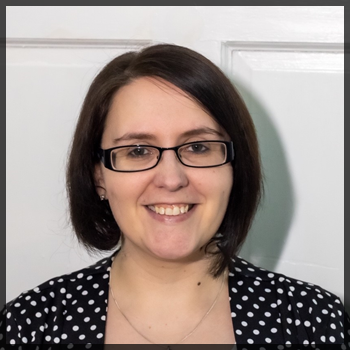
*Updated January 26, 2021*
If you struggle with finding a balance between your academic work and other obligations in your life, you aren’t alone. It can be difficult to find time for everything important to us, and this has probably been a more significant challenge during COVID-19 as many of us have had changes to our day-to-day schedules.
I’m lucky as I get to work from home regularly, but my husband has also started working from home, and my four kids have been home learning remotely on and off throughout the school year – I’ve struggled with not having that regular alone time and space I was accustomed to. The challenges during the pandemic have certainly impacted my sense of balance in many ways, but I struggle with a more personal challenge – saying no.
While working on my own academic degrees, people have often suggested I learn to say no when asked to take on additional roles or tasks, but I have struggled – and still do sometimes – with turning down opportunities or activities, especially if I thought the task would add to my curriculum vitae [CBF1] (CV) or allow me to learn something new. I’m not perfect when it comes to saying no, but here are some helpful tips I’ve learned along the way.
1. Know Your Goals. To know what opportunities you should take, you need some clear goals about where you are heading (Collingwood, 2018). For myself, I was a bit unsure of what path I was going to take with my career, which meant I took any and all opportunities that came my way, regardless of how much time and energy I had. If I had been more focused and had specific SMART goals, I could have carefully selected what opportunities I said yes to based on how well they aligned with my goals. If you need help with exploring a career path or tips for what you might need to have on your resume or CV, connect with the Walden Career Services team!
2. Don’t Apologize. In the past, when I had to turn something down, whatever the reason, I always felt the need to apologize – a lot. But, there is no need to do this; just politely let the individual(s) know you appreciate they thought of you but that you cannot help at this time (Collingwood, 2018). If done professionally and politely, they will understand.

3. Find a Mentor. I am incredibly lucky to have some amazing mentors working in my field who I can openly chat with about opportunities and my goals. They are always willing to share their advice and have helped me make some difficult professional decisions. If you don’t already, seek out someone in your field, whether it’s a faculty member, your boss, or a leader in your community – those who are further along in the field will have important insights about what experiences you need to meet your goals, allowing you to choose opportunities with the most impact.
4. Practice. It might sound silly, but practice saying no to small things. When doing some shopping online recently, one online shop offered me a discount if I signed up for their monthly subscription box, but I knew I wouldn’t use their products fast enough to make the most of the discount. Saying no to small offers like this can help you to become more comfortable being assertive, which is important practice for when presented with a larger request or opportunity (Wong, 2017).
Saying no isn’t easy for everyone, myself included, but those who pushed me to learn this skill were right. Learning to say no and walk away from certain things helps you to strike a better balance. You will also likely find that you’re able to put your energy and time into opportunities and activities you really enjoy and contribute to your goals.
References
Collingwood, J. (2018). Learning to say no. Psych Central. https://psychcentral.com/lib/learning-to-say-no/
Wong, K. (2017). Why you should learn to say ‘no’ more often. New York Times. https://www.nytimes.com/2017/05/08/smarter-living/why-you-should-learn-to-say-no-more-often.html
Dr. Christy Fraenza is the Coordinator for the Doctoral Peer Mentor Program. Dr. Fraenza regularly hosts the Tips to Overcome the Imposter Syndrome webinar in the Academic Skills Center (ASC). She is also contributing faculty for the Center for Academic Excellence (CAEX).
Mary A. Abioye, thank you for this article, it is an opener. the points raised are crucial on my journey to having good success. I promise to keep the steps. thank you
LikeLiked by 1 person
I have my goal set and I ready to go forth. Thank you
LikeLiked by 1 person
THE “FINDING BALANCE BY SAYING NO” is a great practice to success in academic or even daily life. it is a great reminder that people sometime jeopardize the future by helping other, trying to make every one happy and end forgetting their own happiness.
LikeLike